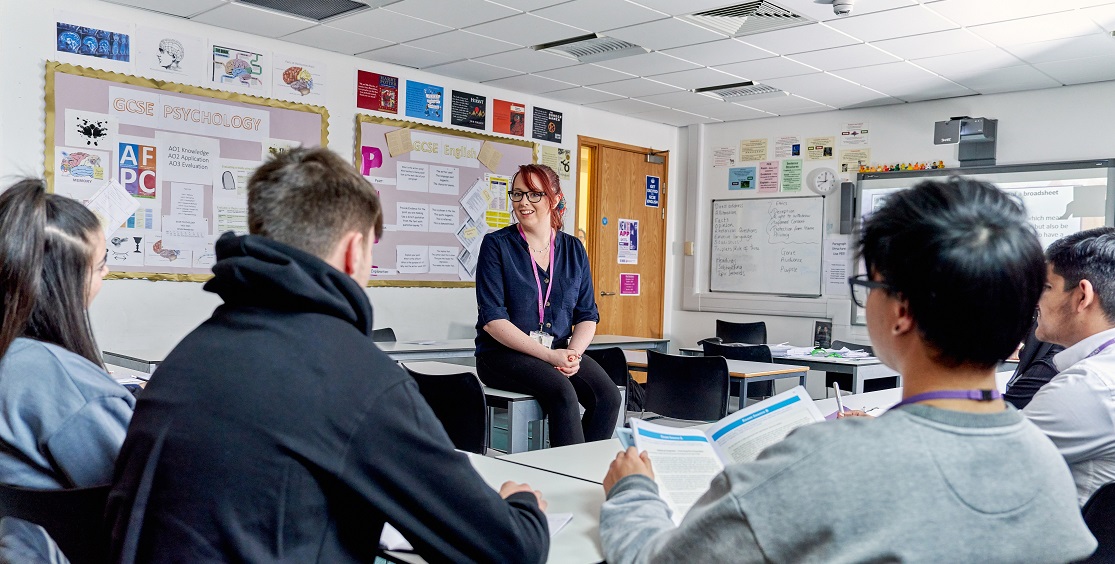College funding is a crisis which often fails to make headlines

The government’s record on education funding is particularly woeful in respect of colleges, says Anne Murdoch, college leadership adviser at the Association of School and College Leaders.
Pay erosion, teacher shortages and insufficiency of government funding have had a calamitous impact on schools in England and have triggered the current industrial dispute.
But what often fails to make headlines is the damage caused by these same pressures on the nation’s colleges and the effect of this on beleaguered workforces and the many thousands of young people in this vital sector.
The current funding position for colleges, less, in real terms, than it was 10 years ago, is simply not good enough for them to recruit and retain teachers.
So far, Education Secretary Gillian Keegan has not addressed these problems, just as she refuses to compromise over the government’s widely criticised plans for post-16 qualifications reform.
College funding
College funding over the past decade or so has been nothing short of bleak.
Analysis by the Institute for Fiscal Studies says that between 2010 to 2020, spending per student aged 16–18 fell by 14% in real terms.
Even with additional funding announced by the government in the 2019 and 2021 spending reviews, college spending per pupil in 2024–25 will still be around 5% below 2010 levels.
Furthermore, there was no extra funding announced in the 2022 Autumn Statement to help colleges cope with larger-than-expected cost increases.
College teacher pay gap
In March, the Institute for Fiscal Studies published a report on college teacher pay.
It found that, even though school teachers’ pay is falling in real terms, the disparity between school and college teachers’ pay has continued to grow.
Between 2010–11 and 2022–23, the median salary for a school teacher has fallen by 14%, while the median salary for a college teacher has fallen by 19%.
The gap in median salary between school and college teachers is now over £7,000 and, depending on the outcome of the current school teachers’ dispute, could become even wider.
None of this is to undermine the challenges faced by schools. Teachers in all areas of education deserve better pay. But it does illustrate that the arguments being made about pay and funding apply just as strongly to the college sector.
Reclassification of colleges
The Office for National Statistics reclassification of colleges to the public sector in January was an ideal opportunity for the government to improve the funding and pay for colleges.
Instead, it failed even to address the inequalities around VAT for colleges and bought in rules to make it more difficult for colleges to take out loans. Colleges cannot now take out new loans without permission. Some colleges are now having to pay for advisors to negotiate with the government over loans, reducing cash levels even further.
The case for post-16 and skills
The Department for Education’s plan to withdraw funding from tried and tested Applied General Qualifications, such as BTECs, before there is sufficient time for the evaluation and rollout of T-levels, is causing further difficulties for colleges when the numbers taking T-levels are still low.
The House of Commons Education Select Committee said in a recent report that rushing ahead with reforms to post-16 qualifications risks leaving young people stranded without suitable qualification pathways and worsening worker shortages in key sectors.
The report echoes many of the concerns raised by ASCL and other supporters of the #Protect Student Choice campaign. It urges the DfE to place a moratorium on the withdrawal of funding for AGQs until there is robust evidence that T-levels are demonstrably more effective at helping students’ progress, meeting industry needs and promoting social mobility.
The committee found that withdrawing funding for many AGQs prematurely risks restricting student choice and narrowing progression opportunities. This, in turn, could lead to an increase in the number of young people not in education, employment or training.
The report says that the introduction of T-levels since 2019 has been weakened by concern over unequal regional access to industry placements (the mandatory nine-week component of the programme), scalability concerns, and an apparent decline in employer interest in offering placements.
Experience of the past already tells us that T-levels, like other vocational and technical qualifications before them, will not succeed without significant industry support, as well as demand from consumers of those qualifications.
We can only hope the findings of the Education Select Committee elicit the support needed not only for more inclusive qualifications reform but also better funding for education.
Action is needed
Whilst costs are rising for education, the financial hurdles facing those delivering post-16 qualifications mean they can do little to help grow their income.
This in turn makes it harder to provide qualifications which employers value and which are delivered by skilled staff. The more this situation persists, the harder it will be to recruit and retain good teachers to deliver the skills which the nation needs.
ASCL is continuing to raise these concerns in meetings with ministers and civil servants, while working alongside other organisations such as the Association of Colleges and Sixth Form Colleges’ Association.
What we don’t want is for there to be a mass exodus of skilled staff or an increase in young people not in education, employment, and training.
If the government is serious about improving the skills of the nation and social mobility, it must put significantly more funding into the very institutions which deliver those skills.
It must not ignore the needs of the hundreds of thousands of young people and adults in education and training, nor fail to listen to the teachers who every day make a difference to the lives of their students.
By Anne Murdoch, college leadership adviser at the Association of School and College Leaders
FE News on the go…
Welcome to FE News on the go, the podcast that delivers exclusive articles from the world of further education straight to your ears.
We are experimenting with Artificial Intelligence to make our exclusive articles even more accessible while also automating the process for our team of project managers.
In each episode, our thought leaders and sector influencers will delve into the most pressing issues facing the FE sector, offering their insights and analysis on the latest news, trends, and developments.











Responses